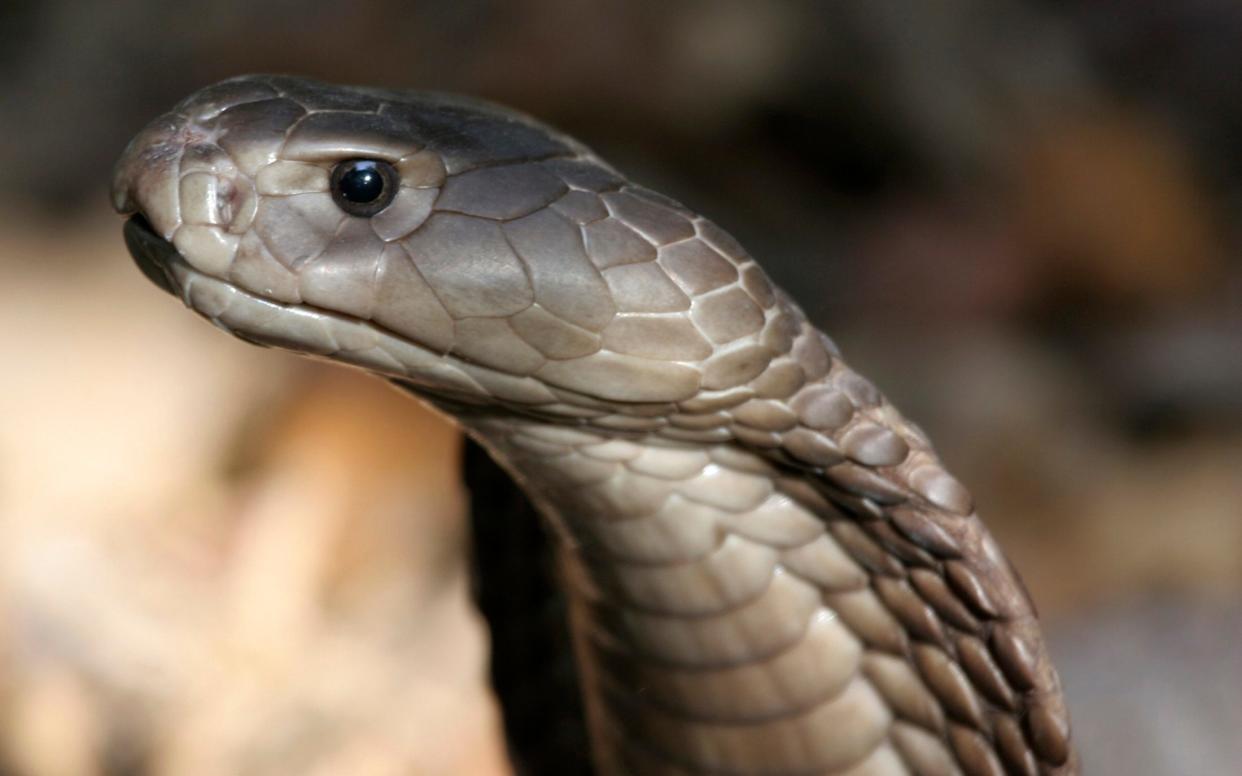Inflammation drug could be repurposed to treat toxic snake bites

A drug used to treat inflammation could be repurposed to treat toxic snake bites from African spitting cobras, a team at the Liverpool School of Tropical Medicine have discovered.
Indigenous to sub-Saharan Africa, spitting cobras release a potent venom in their bites, resulting in rapid destruction of skin, muscle, and bone – a condition clinically known as dermo-necrosis.
The researchers found that, when applied to the site of a spitting cobra bite, the small molecule drug – clinically known as varespladib – was highly effective in blocking one of the most damaging toxins released by the snakes’ venom, almost completely stopping the onset of symptoms.
Current antivenom treatments are designed to prevent death but do little to address the local effects of snakebites, which often result in permanent disability, said Dr Steven Hall, Professor of Pharmacology at the University of Lancaster and a co-author of the study.
“The bite of an African spitting cobra is incredibly toxic, causing a huge amount of tissue damage, a lot of pain, and very rapidly that damage creeps along the tissue and starts to degrade other areas – so it’s really a devastating type of snakebite,” said Dr Hall.
‘World’s most neglected tropical disease’
Of the 2.7 million people bitten by snakes each year, approximately 400,000 will be left with permanent disability, including limb amputation – with most victims poor farm workers in Africa and Asia.
The drug will need to go through clinical trials before it can be rolled out in the field, but the early lab results are promising.
“What we’re hoping to do is develop this as an in-the-field treatment – so it can be used quickly by someone, say, out in the African bush,” said Dr Hall.
Crucially, the drug will need to be given within the hour of a bite but preferably within five and 10 minutes to prevent maximum damage – a huge challenge in low-resource settings with limited access to medical centres.
The team hope that varespladib could be administered via a patch or an EpiPen, meaning that victims could be rapidly treated without needing to travel hours or even days to be seen by a doctor.
“You need this treatment as soon as humanly possible to prevent permanent disability, so if someone was able to carry it in their pocket or their backpack they could save precious time before needing to seek further treatment at a hospital,” explained Dr Hall.

African spitting cobras – of which there are over 18 species – are located across the continent, and are one of the deadliest snakes on the planet.
Aside from biting their victims, the cobras also ‘spit’ venom at them as a defence mechanism.
They have evolved to recognise the glint in an animal’s eye, and can eject toxins with almost perfect aim up to 4 to 8 feet. If not washed out quickly they can lead to corneal swelling and blindness.
Those most at risk of snakebites are between the ages of 10 and 30. Agricultural workers and children constitute the majority of those affected. Children often suffer the most severe effects, due to their smaller body mass.
Snakebites are often dubbed the world’s ‘most neglected tropical disease’, with the burden of death and disability equal to that of prostate or cervical cancer worldwide.
Protect yourself and your family by learning more about Global Health Security

